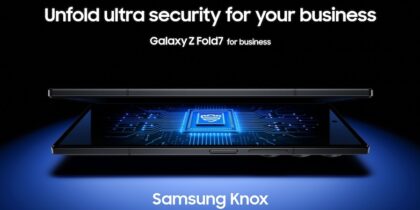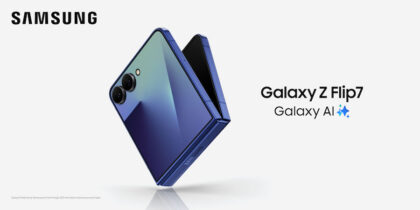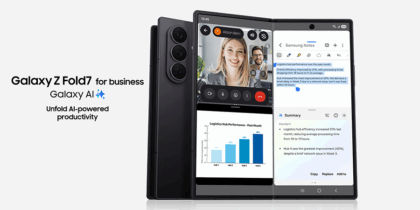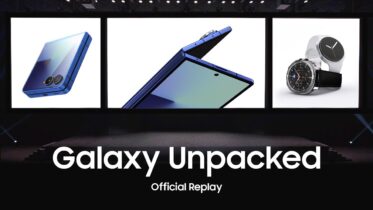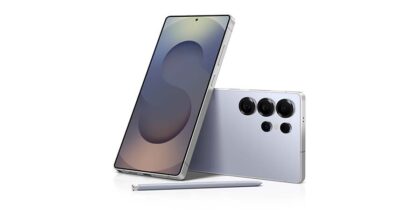5G is a huge part of the mobile technology conversation in 2019. But without a Ph.D. in electrical engineering, it can feel like the 5G experts are talking on a different wavelength. We know 5G is the next generation of wireless connectivity, we know it’s blazing fast, and we know the first 5G-compatible smartphones are now hitting the market, but what else? I recently spoke with Jennifer Langan, VP of mobile product marketing at Samsung, to get a data download on 5G, its business implications and how to prepare your business for the next wireless era.
Q: What is 5G?
Langan: First of all, it’s important to know that 5G is more than just a single technology or just part of the network bandwidth. It really encompasses a number of different technologies, all of which leverage the new 5G software radios. So, you can deploy 5G in a number of different ways, really based on what your needs are. One way would be to deploy millimeter wave frequencies, which can deliver a high rate of speed over very short distances, or you can actually use lower frequency bands for more flexible deployments.
Q: So, is it simply about more speed?
Langan: Speed is certainly a very important aspect of 5G. What you’ll see is you’ll be able to have download speeds up to 10 times or even 100 times faster than what you have with 4G today. At the same time, you’ll be able to deploy up to a million devices within a square kilometer, so the number of devices you can connect to the network will also significantly increase.
But there’s even more to 5G. Beyond just the speeds you’re going to get, you’ll also have a much lower latency with the network. What this means is the response time within the network can be as fast as a single millisecond, and if you think about that in real-world terms, the types of devices and response time you’re going to have over the network, you’re now going to be able to deploy entirely new business cases and new usage models around different devices and different sensors, because the network speeds are going to be so much faster, and the response time is going to be so much quicker.
Q: What are some real-world applications for 5G that make it worth investing in for a business?
Langan: In healthcare, 5G can replace your Wi-Fi infrastructure. It can deliver the bandwidth necessary to provide infotainment at bedside as well as seamless connectivity to your healthcare staff. With low latency, it can also provide future use cases like remote surgery. As home and personal healthcare technology continues to evolve, 5G will support the sensors necessary to drive new use cases like chronic disease management.
Q: 5G is still rolling out. Are there ways that enterprises can leverage 5G now while it’s still being built?
Langan: The first thing to do is really understand the potential of 5G, and start thinking at the speed of 5G. The more you can incorporate 5G and its capabilities into building solutions to help solve your business problems, the more you’ll be able to take advantage of the new technology. 5G use cases are almost limitless.
Take this quick assessment to find the smartphone most tailored to the future of your business needs.


